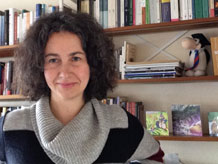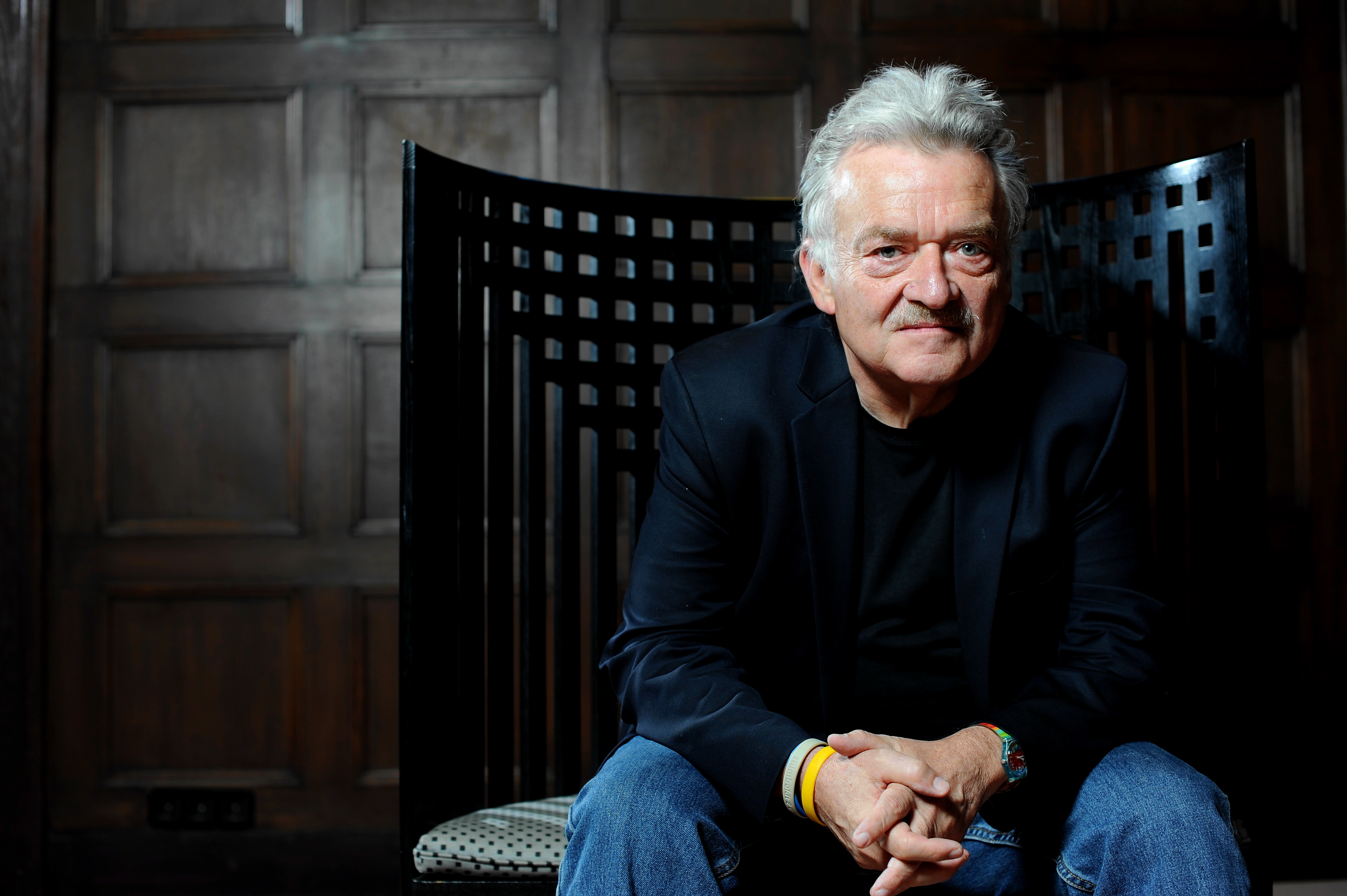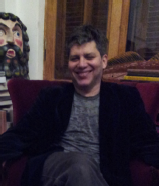Keynote Lectures
Prof Giovanna Colombetti: "Moods, the Extended-Mind, and Incorporation"
According to a much-debated thesis in the philosophy of cognitive science—the so-called “extended-mind thesis”—cognition is not “all in the head”, so to speak, but can also include parts of the physical environment. In my talk I will argue that not only cognitive processes such as memory or problem-solving, but moods as well, can “extend” or come to include parts of the physical environment. One important part of my argument will be that, in order to extend moods, we cannot rely only on existing criteria for extending cognition, but we need to add a further one. Specifically, we need to add the criterion of “phenomenological incorporation”, i.e., show that in moods physical objects can come to be experienced like other parts of one’s own body. Adding this criterion constraints possible cases of “extended mood” and makes the claim that moods can be extended more intuitive and plausible.
Giovanna Colombetti is associate professor of Sociology, Philosophy and Anthropology at the University of Essex. She is a philosopher of cognitive science, and her main research interests and work concern primarily affective phenomena. In her work she draws liberally on phenomenology, analytic philosophy, as well as theoretical and experimental work in psychology and neuroscience. More recently she have become increasingly interested in the contribution that the social sciences (such as cultural sociology and anthropology) can make to our understanding of affectivity. Among other publications, she is the author of The Feeling Body: Affective Science Meets the Enactive Mind (2014) and co-editor of Emotion Experience, a 2005 special edition of the Journal of Consciousness Studies.
Prof Hans Ulrich Gumbrecht: "'Like Being Touched from Inside" - Atmosphere, Mood, 'Stimmung' as a Blind Spot of Literary Criticism"
Since the mid-eighteenth century the offer to immerse oneself into the imaginary version of a foreign or familiar world has been one of the main attractions of literary reading. How can we then explain that critics have long overlooked this dimension of text appropriation? How can we describe it, and what is its status today?
Hans Ulrich Gumbrecht is the Albert Guérard Professor in Literature in the Departments of Comparative Literature and of French & Italian (and by courtesy, he is affiliated with the Department of Iberian and Latin American Cultures/ILAC, the Department of German Studies, and the Program in Modern Thought & Literature). As a scholar, Gumbrecht focuses on the histories of the national literatures in Romance language (especially French, Spanish, and Brazilian), but also on German literature, while, at the same time, he teaches and writes about the western philosophical tradition (almost exclusively on non-analytic philosophy) with an emphasis on French and German nineteenth- and twentieth-century texts. In addition, Gumbrecht tries to analyze and to understand forms of aesthetic experience 21st-century everyday culture. Over the past forty years, he has published more than two thousand texts, including books, translated into more than twenty languages. In Europe and in South America, Gumbrecht has a presence as a public intellectual; whereas, in the academic world, he has been acknowledged by eight honorary doctorates in six different countries: Canada, Denmark, Germany, Hungary, Portugal, and Russia. He has also held a large number of visiting professorships, at the Collège de France, University of Lisbon, University of Manchester, and the Catholic University of Rio de Janeiro, among others.
Prof Hagi Kenaan: "Changing Moods"
When Heidegger argues that “the fact that moods can… change, only means that Dasein is always already in a mood,” he frames our ordinary shifts in mood as indicators of a fundamental existential structure that underlies the specificity of any particular mood. For him, a proper understanding of moods can be gained only once we recognize the basic human condition of always already being-in some mood, always bearing the touch of affect. Yet, is the changing of moods only a means to reveal the inherent depth – the “always already”-- of our givenness to moods, or is it a dimension significant onto itself?
Moving beyond Heidegger, I explain why change should be understood as the grounding condition of our being-in-a mood, and consequently, what it means to embrace the temporality, relationality and intrinsic plurality – the being singular-plural -- of a subjectivity of changing moods. In doing so, I am concerned with the implications that such an analysis carries for the ethical question regarding the freedom and responsibility we have in and over our moods.
In this context, the title of my lecture should be read with a double entendre. “Changing Moods” reflects the obvious fact that moods constantly change; but, it also evokes the idea that agency can be operative in our relation to moods. That is to say, that as human subjects, we are not only given to our moods, but also have an active part – a freedom -- within the changing and unfolding of these moods. I aim to explore how freedom and activity can be part of our passive experience of moods.
Hagi Kenaan (PhD Yale University) is a professor of philosophy at Tel Aviv University, specializing in phenomenology, aesthetics and the philosophy of art. He is the author of The Present Personal: Philosophy and the Hidden Face of Language (Columbia University Press, 2005); The Ethics of Visuality: Levinas and the Contemporary Gaze (I.B. Tauris/Palgrave, 2013) and its French version Visage(s): Une autre éthique du regard après Levinas (Editions de l'éclat); He is co-editor of Philosophy’s Moods: The Affective Grounds of Thinking (Springer, 2011).
Hagi is currently completing a book on the philosophy of photography. In this context, his recent article “Photography and Its Shadow,” appearing with Critical Inquiry, articulates the relationship between mood and the photographic imagination.
Prof Mary Cappello: "Of Mood: An Atmospheric Reading"
“But I never forgot that we had made something worth trying to make again, if not together, then alone: it was shaped like a hollow; it was without words; it was presence without awareness of presence; it was a mutually entrusted mood.”
Is it possible to invent a literary form that can answer to mood's uncontainability?
Mary Cappello will present a multi-modal reading based on the conceptual and aesthetic challenges that mood poses, and drawn from her forthcoming book, Life Breaks In: A Mood Almanack. Cappello will also introduce the idea of the "mood room" as a multi-disciplinary public space.
Mary Cappello is the author of five books of literary nonfiction, including Awkward (a Los Angeles Times bestseller); Swallow, based on the Chevalier Jackson Foreign Body Collection in Philadelphia’s Mütter Museum; and, Life Breaks In: A Mood Almanack, forthcoming this Fall from the University of Chicago Press. A recipient of a Guggenheim Fellowship, a Berlin Prize, the Bechtel Prize for Educating the Imagination, and the Dorothea Lange-Paul Taylor Prize, she is Professor of English and Creative Writing at the University of Rhode Island. Visit her website: www.marycappello.com




